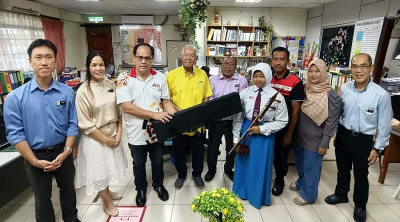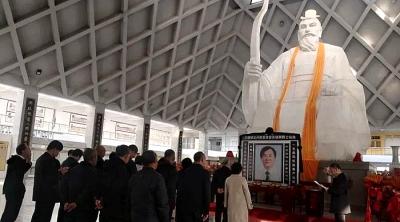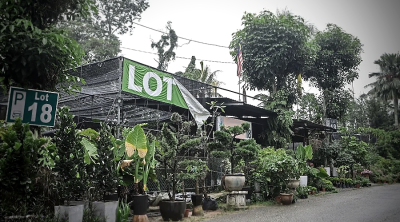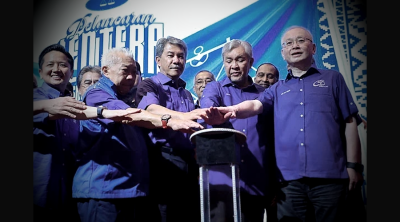Sin Chew Daily
The first two days of the five-day special parliamentary sitting was characterized by riotous squabbles and angry exchanges of words from opposing sides of the hall, much to the frustration of Malaysians watching the sitting live on TV.
Into the third day of the special sitting, at least we saw some normalcy, a stark departure from the commotion of the previous two days. When the minister was delivering his briefing, everyone inside the hall was listening attentively and the Q&A session was conducted in an orderly manner, an unusual day of peace indeed.
People who followed the special parliamentary sitting should have some idea why the parliament was thrown into an utter mess, and there is no necessity to explain all over again here.
Indeed we all know how individual MPs have performed. Elected reps on both sides of the political divide have their own agendas, each infinitely magnifying the weaknesses of the other side to advance their own political motives, which is actually a universal phenomenon in legislatures worldwide.
The special parliamentary sitting this time has been specifically designed as a briefing session with lawmakers allowed to pose questions only after a briefing but no debates or voting would be held.
It is therefore within anticipation that the opposition is not going to be happy with this kind of operation. That said, perhaps the opposition reps can adopt a more civilized approach to convince the public and win over the hearts of the people instead of starting a bickering. Yelling and arguments will not help put things back in order again but will only expose the undesirable traits of individual reps.

A briefing by a minister is not a bad arrangement in the first place. After all, it is time for our ministers to get back to the August House and face the scrutiny of elected reps after the parliament has been stalled for over half a year since the proclamation of the emergency decree.
They should be able to get their messages across as long as they come into the hall adequately prepared and respond to the queries in a professional manner. Malaysians should be able to tell how well the ministers giving the briefings have performed.
The briefing presented by Khairy Jamaluddin, the national immunization program coordinating minister, was well received in the hall, and this shows that if a minister is well prepared and delivering his speech in an orderly manner, the objectives of this special sitting can still be achieved.
Khairy's report has allowed the MPs, and the whole of Malaysia in that matter, to have a better idea of the progress and developments in the government's vaccine procurement, and how we are currently negotiating mutual recognition of vaccination certificates with EU, China and other countries through bilateral talks.
Answer was also offered as to why we had been slow in handing out vaccination appointments, besides negotiations over ceiling prices of vaccines to be administered by private clinics.
These are all the things we wish to hear from the minister himself.
A government can only do its job dutifully with close supervision from the people. As representatives of the electorate, the MPs have the obligation to monitor the operations of the government while ministers have the obligation to answer all the questions, and report to all MPs and the general public the progress of the implemented government policies. The opposition MPs' duty, meanwhile, is to oversee the governance.
Be it the five-day special sitting or any regular parliamentary sitting, the ultimate objective is to allow the system to bind the powers and people so that the rakyat can have the indirect power of overseeing the government's operations and that everything is carried out openly.
It will constitute a lapse of duty or abuse of power on the part of a minister if he fails to explain his actions to the people, or a decision has not been made within the confines of the system, or intentional evasion of public queries.
To put it simply, the orderly operation of the parliament requires close coordination from various aspects. First of all the system must be loyally adhered to, as with the standing orders. No one is above the laws, less so contradicting the Constitution. The Dewan Speaker must be completely impartial, not leaning towards any side throughout the sitting.
As for the elected reps, they must never treat the August House as a stage to pursue their personal or their parties' political interests. It is meaningless for backbenchers and opposition MPs to not properly harness the time and resources to make truly effective proposals but continually engage in unnecessary bickering inside the hall.
The five-day special parliamentary sitting will very soon come to a close. It is up to you the readers to judge whether it will eventually meet the objective of reconvening of parliament as ordered by the Yang di-Pertuan Agong, or how far we are from the standards of a truly first class parliament, a question repeatedly raised each time the parliament convenes.
While we may get excessively disappointed, by no means should we give up hope. The ballot in the hand of each one of us is a crucial factor that will determine the quality of our parliament.
ADVERTISEMENT
ADVERTISEMENT


































